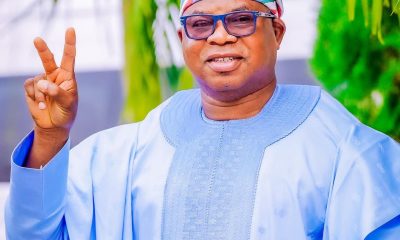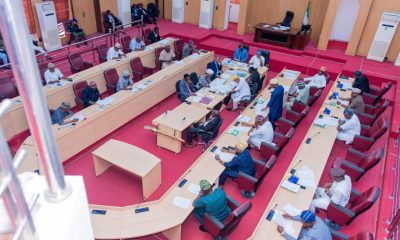News
[ThursdayRapAround] 2021: The Year After Pandemic, WAS 2021 Really A Recovery Year?

Getting deserved answer(s) to this poser will vary largely from individual to individual.
Realistically, there can never be uniform or chorus answer to this. Since what applies to A may not necessarily apply to B. As such, because we are wired differently, our perceptions of th]ings, assessment of situations around us will definitely vary.
With a New Year on the horizon, however, there is need to reflect on challenges along the line with the benefit of hindsight, opportunities (both explored & missed), and progress made so far, with a view to hitting the ground running in the new year.
At the start of 2021, precisely in January, the global economy was projected to expand by 4%, hoping that an initial COVID-19 vaccine rollout becomes widespread throughout the year.
It remains to be seen however if the earlier projection has amounted to anything reasonable.
A recovery of this magnitude will remain a tall dream, except the government, its functionaries and other policy makers move decisively to tame the pandemic and implement investment-driven reforms that are capable of propelling stability.
With several thousands of Nigerians made unemployed by COVID-19, battered economy, coupled with lower volumes of exports such as oil, Nigeria’s economy soon went under by 6.1% year-on-year in the second quarter of the year.
As with most other economies around the globe, the sharp drop in Nigeria’s GDP growth was largely down to the slowdown and near lack of meaningful response in economic activity, sound policy frameworks and other interventions.
Nigeria’s economy also had its fair share from some external factors too as the coronavirus pandemic resulted in a near-total shutdown of economic activity around the world. The accompanying sharp drop in oil prices amid a drop in global demand left the country on a cliff edge and drastically short of earnings given its dependence on the commodity as its biggest revenue source.
While Nigeria may have made some progress in socio-economic development in recent years, its human capital development is ranked 150 of 157 countries in the World Bank’s Human Capital Index.
This is unacceptable anywhere in the world – with the abundant resources at its disposal?
Nigeria has ccontinued to face massive developmental challenges, including the need to reduce the dependency on oil and diversify the economy, provide jobs, address insufficient infrastructure, build strong and effective institutions, as well as address seeming paralysis in governance and public financial management systems.
Inequality, in terms of income and opportunities, remains high and has adversely affected poverty reduction. The lack of job opportunities is at the core of the high poverty levels, regional inequality, and social and political unrest. High inflation has also taken a toll on household’s welfare and high prices in the year may have pushed an additional 12 million Nigerians down the poverty cadre.
Sadly, the government on whose shoulder the burden rests, appears helpless and clueless and instead, has taken refuge in blame game.
For a country with massive wealth and a huge population to support commerce and other SMEs, a well-developed economic road map, capacity building and human capital development are some of the indices needed to bring about sustainable transformation. But we must quickly add that only a visionary leadership will make this happen.
Few years ago, it was reported that the population growth rate was higher than the economic growth rate, thereby leading to a slow but steady rise in poverty cadre – and our government seemed unperturbed.
Right now, we have the following staring at us boldly in the face:
*lncome inequality
*Long-term ethnic/religious strife, civil unrest
*Political instability and endemic corruption
*Kidnapping, banditry, terrorism etc
*Economic fluctuations
*Deafening poverty in the land
*Multiple taxation
*Near-lack of responsive, accountable leadership.
*Life-threatening inflation – the socio-economy power of the people has been gravely damaged with high prices of essential commodities.
Can we conveniently say there have been recovery truly?
Not exactly as the government or its agents will always make us believe.
Without doubt, the messages around town are indicative of the real state of things – let’s not be deceived.
-

 Entertainment4 days ago
Entertainment4 days agoNigerian Singer, Ifunanaya, Died After Snake Bite In Abuja
-

 Opinion5 days ago
Opinion5 days agoBola Oyebamiji: Beyond Skelewu Dancer: The Rising Technocrat Poised To Govern Osun State In 2026 By Wale Atoba
-

 News4 days ago
News4 days ago20-Year-Old College Student Found Dead With Body Parts Missing In Kogi
-

 News5 days ago
News5 days agoOsun Assembly Warns UBA, Oyetola, APC Over Alleged Diversion Of Osun LG Funds


